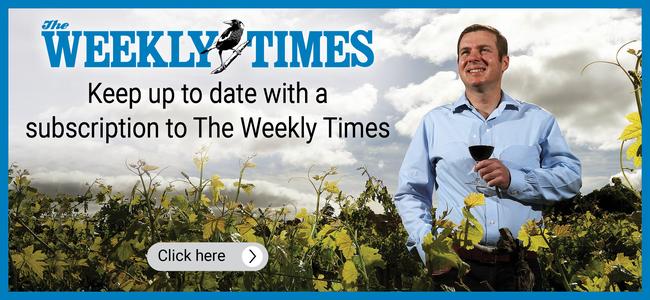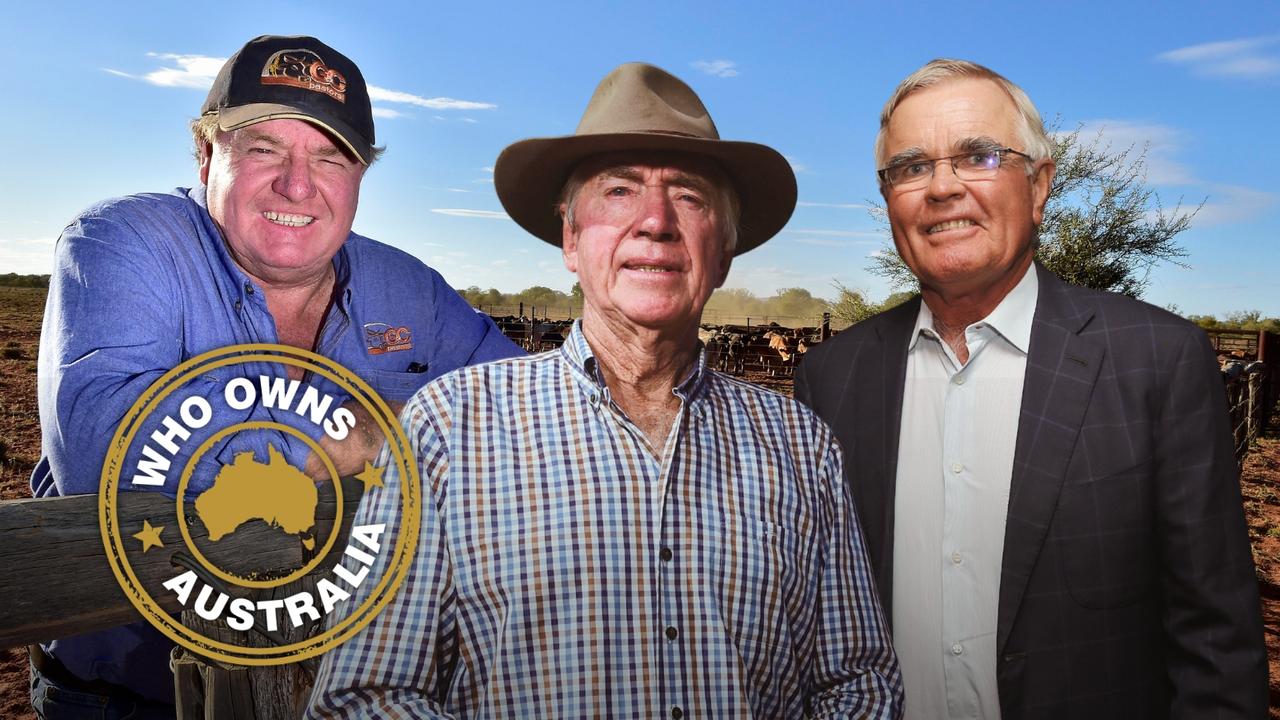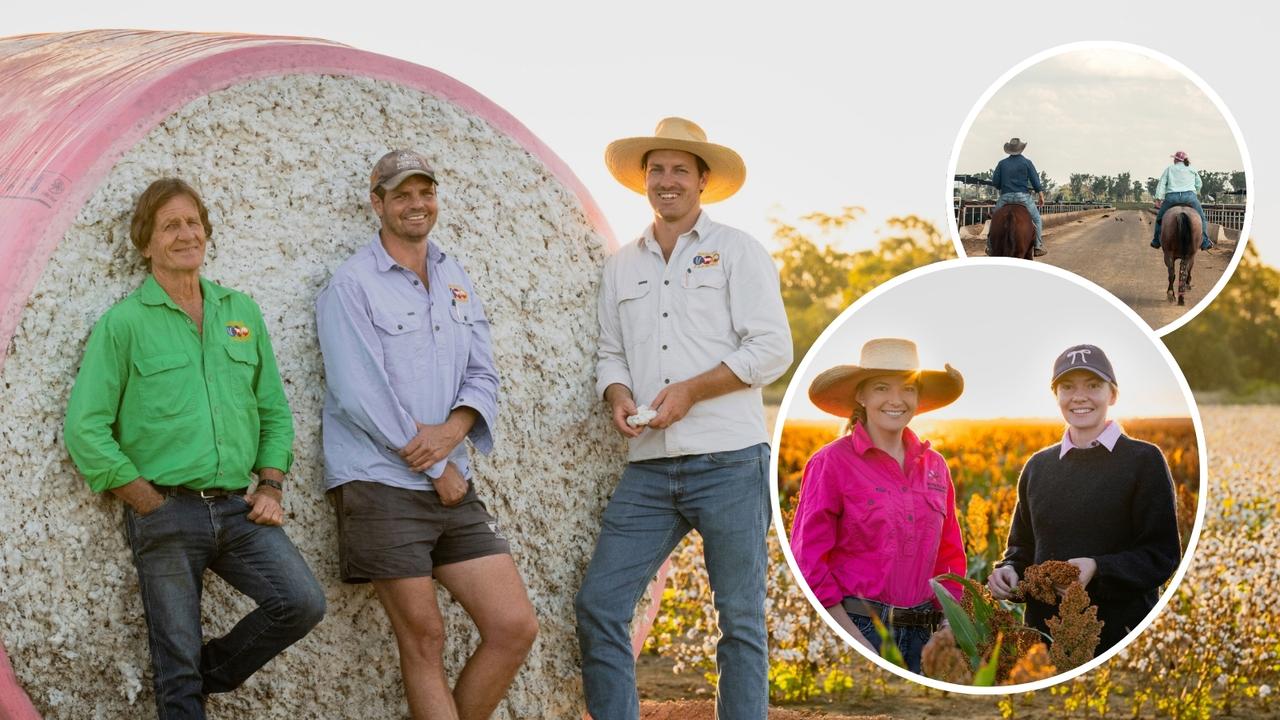Life as one of the most senior women in Australian agribusiness
At the age of 36 Anna Speer is not just chief operating officer of the nation’s largest cattle company, but one of the most senior women in Australian agribusiness.
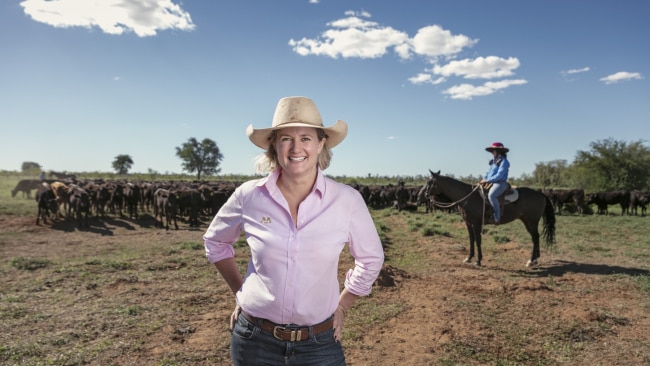
This story is free to read, but there has never been a more important time to stay connected to the news. For a limited time you can get a special digital subscription to The Weekly Times from as little as $1.30 a week for four weeks*.
ANNA Speer admits she had never seen anything like it in her life.
And fervently hopes never to again.
Flying into Queensland’s remote Gulf Country in early February on day two of what would become the biggest flood to sweep the region in 500 years, the 36-year-old chief operating officer of Australia’s biggest and oldest cattle and beef company, Australian Agricultural Company, says nothing could have prepared her for the sight that lay ahead.
With four of AACo’s 21 vast cattle stations located in the Gulf area around Julia Creek and on the floodplains of the mighty Flinders River towards Normanton, Speer quickly learned unprecedented volumes of water were heading downstream towards the homesteads, property staff, cattle herds and outstations that were her still-new responsibility.
SPECIAL REPORT: WHO OWNS AUSTRALIA’S FARMS
ALTERNATIVE PROTEINS PROVIDE FOOD FOR THOUGHT
“I knew it had rained for more than a week straight in the Gulf and that rivers like the Flinders, the Saxby and Cloncurry all merged around Canobie and Dalgonally (stations), but it was still extraordinary to see,” Speer relates, the horror still fresh in her voice.
“It was only going under as we flew in; but within a few hours Wondoola homestead was under water and there was an inland ocean 100km across where every river had broken its banks and thousands of our cattle were caught. Animal welfare had to be our top priority after first making sure our people were all safe.”
The Gulf flood of early February confronting Speer was no tranquil sheet of longed-for drought-breaking Big Wet inundation.
Instead, the COO of just six months standing was faced with more than 800,000 hectares of AACo property covered by a giant grey “churning washing machine”, complete with waves and currents, that was sweeping livestock, buildings, yards, fences, trees and soil out of its path and destroying decades of cattle breeding, station infrastructure and pasture management operations.
“It was horrific; I don’t want to see it again in my lifetime,” Speer says.
“The resilience, knowledge and experience of our people on the ground was amazing — their support for me and looking after each other and our stock — they made sure we did all we could.
“But there was often little we could do; while we rescued some cattle, mustered them to islands and dropped feed from choppers for others marooned on higher ground, in many cases all we could do was humanely euthanise the stock we found swimming in water 70km from the nearest shore, that were beyond any hope of saving.
“This was bigger than anything any of us had experienced before; for me it was the first time dealing with such a massive natural disaster involving such large numbers of people and animals, but really we were all learning on the fly.”
Despite the rescue efforts, it took another three weeks until the full extent of the terrible stock losses suffered by the venerable AACo became clearer.
That was when the company — the nation’s oldest corporation, which had farmed as many as 650,000 cattle a decade or two ago on the seven million hectares across remote Northern Australia that it owns — announced to the Australian Stock Exchange that it feared it may have lost more than 50,000 cattle in the floods.
The worst-case scenario based on figures released by AACo were that about 52,000 cattle, or almost 10 per cent of its total herd, may have died in flooding on its four Gulf stations, at the same time as it was ironically struggling to manage serious drought on distant stations on the Barkly Tablelands and other parts of the Northern Territory.
On the 252,500-hectare Wondoola station, the hardest hit of the AACo Gulf stations, as many as 90 per cent of its 33,000-strong herd of breeding Brahman-cross cows and composite cows and calves appear to have been wiped out.
AACo’s three other Gulf stations — Canobie, Dalgonally and Carrum — also suffered heavy flood losses. Canobie is feared to have lost 30-40 per cent of its 36,000 composite cows, Dalgonally as many as 70-80 per cent, and Carrum about a third of its 4500 breeders, as well as many of its valuable Brahman-Wagyu composite bulls.
AACo also estimated the cost of its massive clean-up and repair bills across the four affected Gulf stations and their 800,000 hectares at $6-$8 million, including tens of thousands of kilometres of boundary fences destroyed.
“We still think more (cattle) may have survived than we fear lost. They are still coming out of the woodwork,” Speer says. “But this isn’t all about me. While I have had full autonomy on how I have managed this (disaster) from a company perspective — and it is the first such crisis of this magnitude I have dealt with — we have all pulled together.
“The board and (CEO) Hugh Killen have been so supportive that I have always felt it’s about getting the job done and helping our people on the ground in every way we can to get back on their feet.”
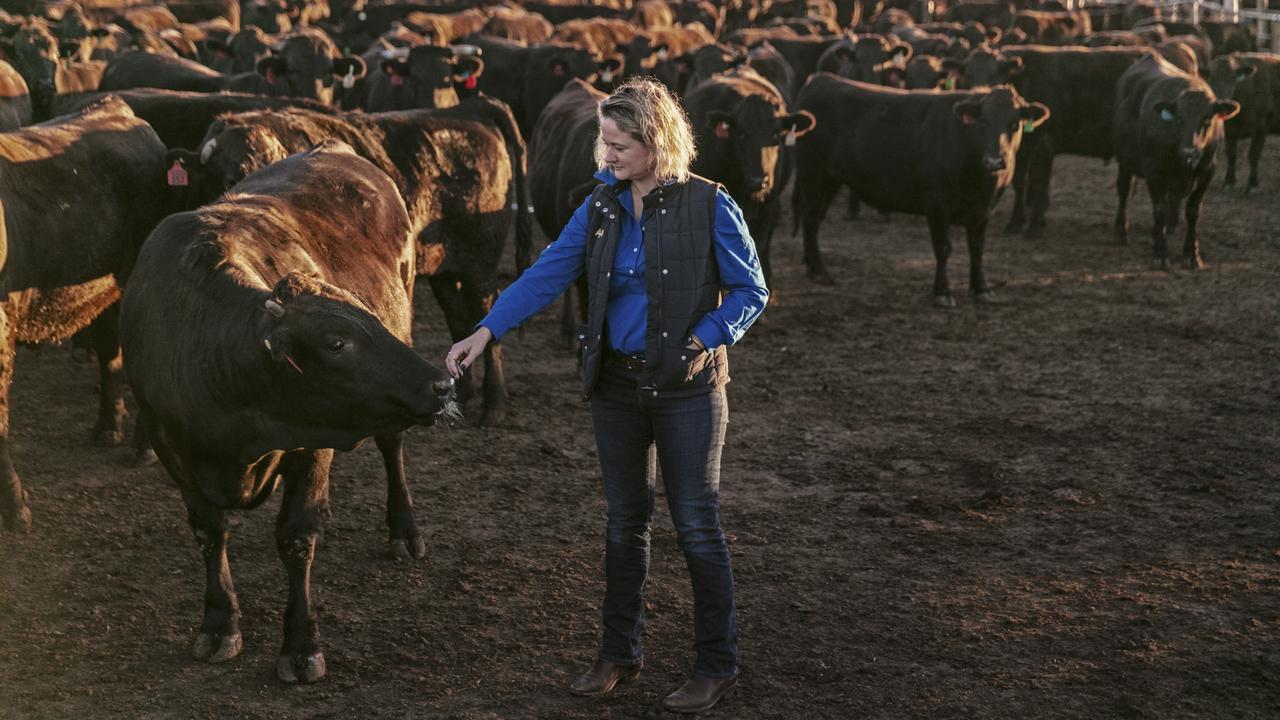
BAPTISM OF WATER
The former Monash University molecular scientist-turned-outback jillaroo, with the trademark flyaway blonde mop of hair and ready grin, admits it has been a tough start to her new job as one of Australia’s highest profile female agribusiness bosses.
The floods followed hard on the heels of a dramatic reorientation of priorities for listed AACo, which has suffered under a floundering share price and poor profits for the past five years despite owning nearly 1 per cent of Australia’s land mass by area and enjoying a long-awaited boom in cattle and beef values.
The rise in global meat prices — long predicted as the world’s population soars and middle-class consumers in nations such as China become more affluent and can afford to buy more protein and eat more expensive imported meat cuts — also coincided with control of Australia’s oldest corporation shifting rapidly towards its biggest single shareholder, British investment billionaire Joe Lewis.
Lewis’ Bahamas-based Tavistock Group has gradually tightened its grip on AACo’s increasingly globally rare and valuable farm-reared beef assets, moving from a 23 per cent stake in 2014 to close to 46 per cent ownership of the $680-million public company earlier this year.
At the same time, Lewis began to shift AACo from being a knockabout Australian outback cattle company and station owner, to a global retailer, producer and marketer of top-quality luxury branded beef with a much higher price tag attached to every kilogram of meat sold.
The move has seen AACo ditch its mantle as Australia’s biggest single cattle owner, with livestock numbers shrinking by almost 30 per cent down to its current 450,000 head, especially after the recent floods and drought.
The focus on the type of cattle being bred has radically switched from easy-care tropical Brahman-style cows and bulls to higher quality and consistently produced full-blood Japanese Wagyu or F1-crosses that require more attention and better feed, but which yield much higher-grade beef and higher-value offspring.
All cattle production, except in the Victoria River Group of properties in the far northwest of the Northern Territory (where live cattle export to Indonesia remains viable), is now focused on producing tender young Wagyu-style beef, with every steer or heifer trucked in from the outback grass production chain now finished on grain in the company’s Aronui feedlot near Dalby on the Darling Downs, or its Goonoo feedlot closer to Emerald.
The strategy is to add value to the final meat product every time stock are handled or transported, resulting in higher returns from fewer cattle and less volume of beef.
We are no longer focused on being the biggest beef cattle owner in the world.
“We are no longer focused on being the biggest beef cattle owner in the world; we are now locked into a smarter way of thinking,” explains Speer, inspecting some of the top Wagyu breeding cow herd on AACo’s Wylarah station near Surat.
“Rather than chasing numbers we are making sure we have the highest quality beef we can to sell into premium markets globally; all (our production) is targeted at driving the Wagyu value chain.
“Everything we turn off must have a (meat) marble score between two and nine — whether from purebred, full-blood or first-cross Wagyu, or targeted at the top Wagyu brands or the mid-tier gastropub Wagyu beef — it is all about driving the best margins and premiums rather than turning off large numbers and bulk commodities.”
But the company remains massive. Both within Australia and overseas, beef from AACo farms — sold fresh, chilled and frozen — feeds more than one million people every day.
Technology is also playing a massive part in the company’s restructure, with every animal fitted with NLIS electronic ear tags tracking its life history, genetic testing to identify the best breeding stock and all station staff wearing smart watches and using ipads to collect, record and relay data from outstations and remote cattle yards back to the company’s head office in Brisbane.
AACo’s new $100-million Livingstone Beef abattoir near Darwin — opened to great fanfare in December 2016 as the company’s first venture into meat processing — has been a further victim of the corporate restructuring.
It was mothballed early last year and $75 million written off after struggling to buy and process enough aged cows and failing to turn a profit. Its major product of low-value and low-grade bulk “old cow” boxed beef aimed at export US hamburger mince markets increasingly failed to sit well within the company’s new luxury high-value beef business model.
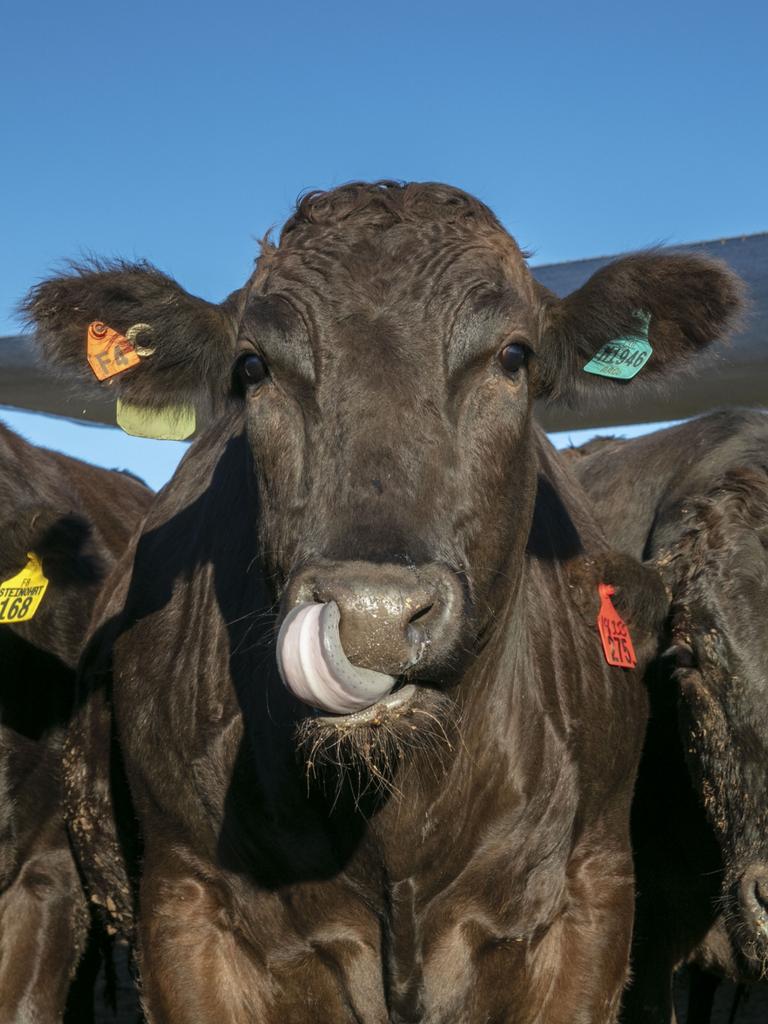
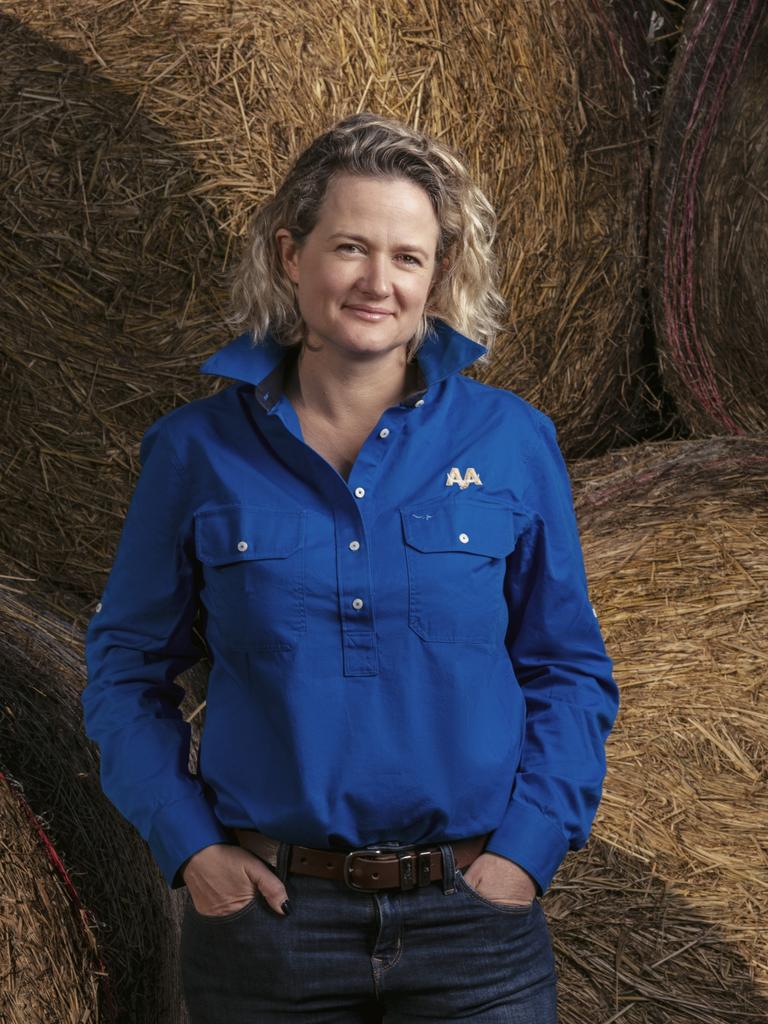
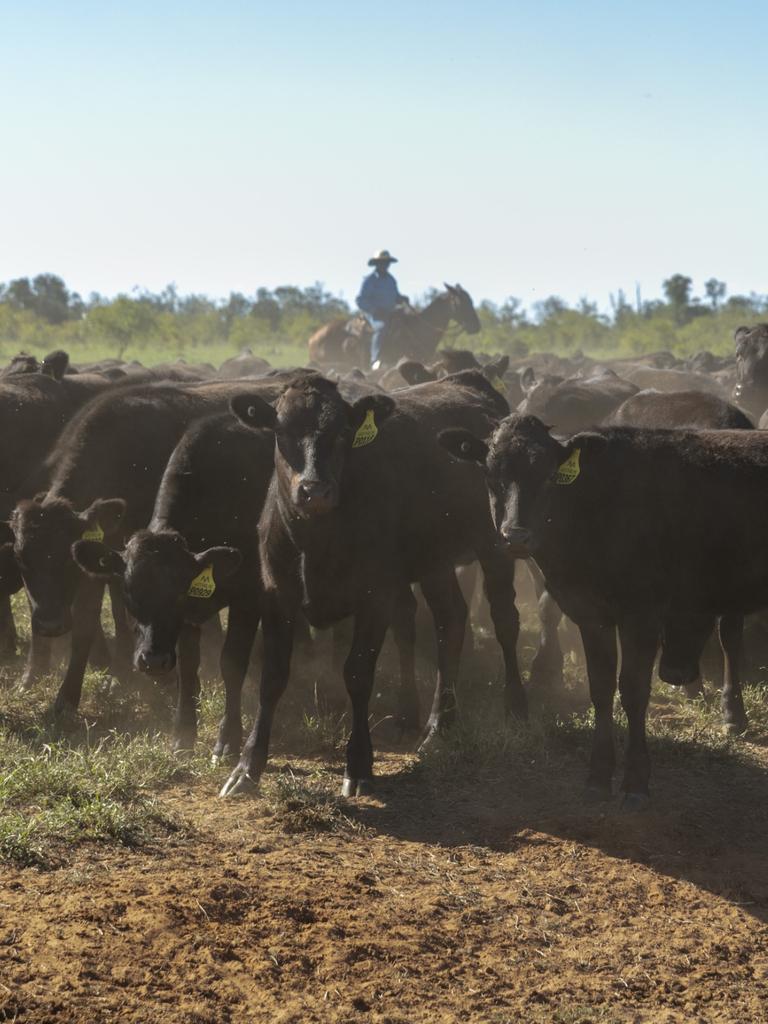
CHANGE MAKER
IT IS no chance occurrence that the changing face of AACo coincided with the arrival of bright young Anna Speer at its operational helm in August last year, fresh from winning both personal agribusiness accolades and building a stellar business after being CEO of online livestock selling business AuctionsPlus for four years.
AACo had already been outed the previous year as one of just six entities among Australia’s biggest listed 200 companies without a woman sitting on its board of directors.
That gender imbalance was promptly ameliorated by chairman Donald McGauchie with the appointment of Chinese marketing specialist Jessica Rudd, the daughter of former Labor Prime Minister Kevin Rudd, to the AACo board, bringing with her obvious youthful outlook and Chinese online sales nous a new way of thinking about future food and brands.
But nothing brought attention to the new outlook of AACo quite like Speer’s surprise appointment as COO last August, managing all facets of AACo’s paddock-to-plate supply chain as well as its 18 stations and 280 operational staff.
It marked a swift 15 years out in the field for Speer on a rather non-traditional career trajectory, after first fleeing Melbourne to go bush for “a change of air” on leaving university aged 20, and heading to the wilds of Auvergne station in the Northern Territory’s Top End for a job in the dusty stock camps with Consolidated Pastoral Company.
She then spent five years as a jillaroo on several Territory properties, before working alongside influential CPC boss Ken Warriner as the stud registrar at Newcastle Waters Station. A teaching degree in primary and secondary education was picked up along the way via distance education, with Speer also teaching at local indigenous community schools near Tennant Creek and north of Alice Springs.
“I always had this image of myself as a country kid, but arriving from the city and university with a dressage saddle at the stock camps at Auvergne Station with Consolidated Pastoral Company, I was clearly not,” Speer acknowledged last year, when accepting the prestigious Rabobank Emerging Agribusiness Leader of 2018 award.
She says this humbling start wasn’t a barrier to success.
“A bit of hard work and curiosity changed that over the following five years, first working in the camps and then teaching in remote indigenous communities; it was a wonderful eye-opener into Aboriginal and Torres Strait Islander culture, an experience I wish more people had the opportunity to get.
“Now I find that people in the AACo stock camps enjoy having someone (at the top) who was doing what they did eight years ago; it demonstrates to them that you can go anywhere with the right attitude. But I also remind them that I need them as much as they need me; they are the experts on the ground and play a critical role in the long-term success of AACo.”
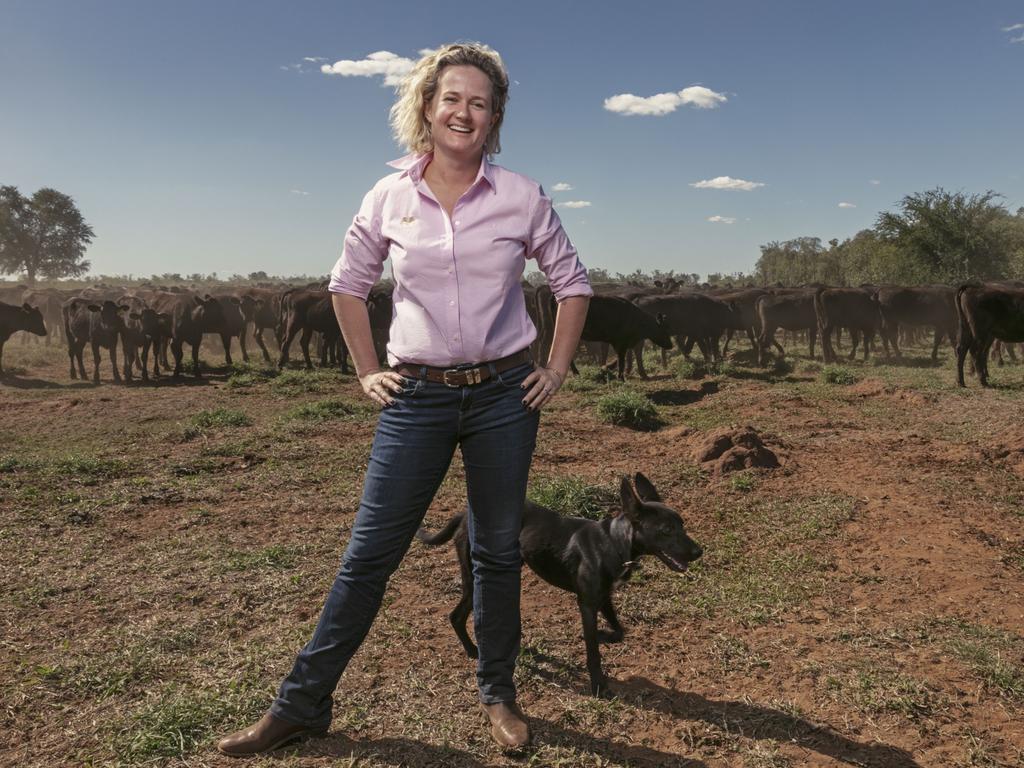
A key career change came for Speer in 2010, after she completed the “life-changing” 18-month Australian Rural Leadership Program and came to the attention of some of Australia’s top agricultural leaders, including Elders chief Mark Allison, Ruralco managing director Travis Dillon and former Meat and Livestock Australia boss Richard Norton.
Fresh from working with some of the latest technology out in the field with CPC and its stud breeding and genetic books, Speer was promptly offered the job as customer relations manager and then national general manager of the Livestock Exchange, a livestock-management software company.
Describing it as a “sink or swim moment” when she learned about the red meat supply chain, the importance of traceability and provenance, it was a job that led to Speer in 2016 taking the helm at cutting-edge online livestock selling business AuctionsPlus — trading $830 million of sheep and cattle each year — while at the same time tackling a master’s degree in business administration through the University of Sydney’s Global Executive MBA program.
“Change is the only constant in life, it is uncomfortable and scary but if you don’t embrace it, you don’t get to find out what’s on the other side,” says Speer, who attributes much of her success to empowering a team of passionate people.
“I’ve learnt to trust in the magic of new beginnings, and that with a collaborative and brave approach to life, being a teacher and a learner, you can go anywhere.
“I have also been fortunate to have so much support over the years; especially doing the Australian Rural Leadership Program, (which) made me understand myself, helped me get rid of being passive-aggressive, and taught me that empathy and trust will always win people over.
It’s not until you know and understand yourself that you can truly be a good leader.
“But it’s not until you know and understand yourself that you can truly be a good leader, help other people and push and empower them to think about how they can evolve and stretch.”
Rabobank Australia chief executive Peter Knoblanche describes Speer as an innovator at the forefront of the transformation of Australia’s livestock supply chain
“Anna’s authenticity, and belief in herself and others, has seen her build strong credibility as a leader at just 36 years of age,” Knoblanche says. “And her reach and influence will only increase, as she sits in the driving seat of Australia’s oldest continuously operating company.”
Elders Mark Allison, who worked closely with Speer as her chairman at AuctionsPlus, continues to be impressed by Speer’s intellect, irrepressible energy and the speed with which she picks up and runs with new ideas. “She is always customer-based and willing to work hard and learn,” Allison says. “I deeply value our professional and personal relationship, and see Anna as going from success to success.”
But more big change is already on the horizon for Speer, just as she grapples with the aftermath of the devastating Gulf floods. Speer and her husband, business manager Andrew Spence — who last year moved to Brisbane from Sydney to take up Speer’s new role with AACo — are expecting their first child in late October, with the tough early pregnancy period coinciding with the height of the flood trauma when Speer was out on helicopters searching for surviving cattle.
An excited Speer is taking it all in her stride, while crediting Hugh Killen and the AACo board with providing her with immeasurable support and reminding her to take it easy every now and then.
“It’s been a pretty rough eight months since I started — I don’t think many managers would experience in a lifetime what we have had to deal with — and it hasn’t always been fun; I liken it to drinking from a fire hose,” Speer says, laughing. “But I’m also loving it — the people I’m working alongside are second to none and I’m always happiest when I have a really good challenge in front of me.
“I had that when I was with AuctionsPlus transforming the livestock selling sector, and I’m lucky to now have it again with AACo where the focus is on continuous improvement, provenance, transparency and truly being the industry leader in Australia’s red meat sector.
“I like to say never waste a good crisis and that’s how I see the Gulf floods — they are an opportunity to redesign and transform both our properties and our practices, and I can honestly say we are doing the best thing for our animals, our people and our country.”


